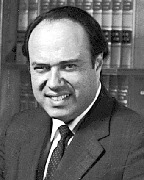The Appellate Tax Board (ATB) issued an important decision on October 21, 2011. The decision is The Congregation of Sisters of St. Joseph of Springfield, Inc. v. Board of Assessors of The City of Holyoke (the "Holyoke Decision"). The ATB in the Holyoke Decision granted a full exemption to the charitable organization from all real estate taxes.
Massachusetts law (General Laws, Chapter 59, Section 5, Clause Third) requires that property be owned and occupied by a charitable organization, in order to be exempt. In the Holyoke case, the property was owned by a charitable organization, but occupied by low income elderly tenants under the HUD 202 program. The ATB found that the property was totally exempt from all real estate taxes. This is an important clarification to a wide spread issue, and should affect many affordable housing projects throughout Massachusetts.
The project in Holyoke is a HUD low income elderly housing project. The fact that residents have leases is not decisive. In other words, there can be leases and the property can still be occupied by both the charitable organization and the residents. The occupancy can be shared between the residents and the employees of the charitable organization. The Holyoke project could not benefit from a surplus of income over expenses.
The occupancy does not have to be exclusive. This is the real importance of the case. It is also important that the ATB granted a full exemption. It was given the chance to grant just a partial exemption, but went all the way to a full exemption from all real estate taxes.
Saul Feldman is a real estate attorney with Feldman & Feldman, P.C., Boston.
Tags:









